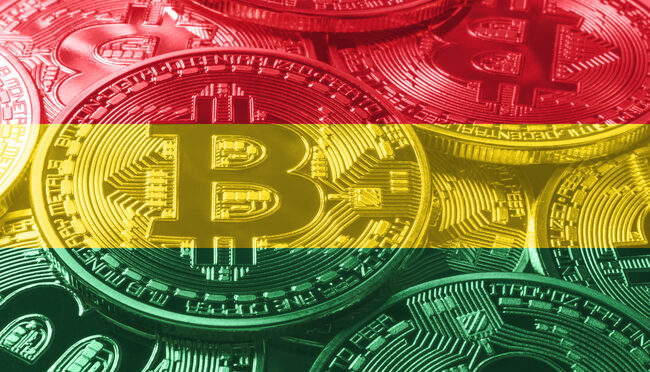Highlights:
- Transactions that rely on crypto have surged in Bolivia as people moved away from cash due to traditional market volatility.
- The boliviano has lost almost half of its value in the black market due to inflation in the country.
- The Central Bank launched education programs to teach users about crypto safety, fraud risks, and digital wallet use.
According to the Central Bank of Bolivia, citizens are increasingly using digital assets as inflation rises and dollar shortages persist. The bank reported that more Bolivians are relying on cryptocurrencies for daily transactions as the economy faces serious pressure. Prices have climbed, dollars have become scarce, and fuel shortages continue to cause long lines at pumps across the country. To counter this, several individuals have turned to digital solutions to defend their buying potential.
The Central Bank of Bolivia, a South American country, reported that since the lifting of the cryptocurrency ban in 2024, Bolivia's crypto payment transactions reached US$430 million in 12 months, a year-on-year increase of 630%. 86% of the transactions were completed by…
— Wu Blockchain (@WuBlockchain) June 28, 2025
Bitcoin ATMs in Cochabamba, a city and municipality in central Bolivia, enable individuals to exchange coins for digital currency. Certain salons provide a discount when paying in Bitcoin, and customers can now use their crypto accounts to purchase fast food. Although the official rate is fixed, the national currency of Bolivia, known as the boliviano, has lost half of its value on the black market.
Bolivian Central Bank Confirms Jump in Digital Asset Transactions
According to the Central Bank, transactions involving digital assets have skyrocketed within the last 1 year. These transactions in the first half of last year were worth $46 million. This sum has grown by 530% to $294 million in the same period this year. Overall, digital asset transactions totaled $430 million in 10,193 transactions recorded between June 2024 and May 2025.
Most transactions came from individuals, who made up 86% of users, with 77% of them being men. Many citizens prefer platforms like Binance for their peer-to-peer services and lower transfer fees. The younger customers particularly prefer digital assets such as the USDT to the boliviano or physical dollars.
Several countries are introducing cards and platforms to boost digital asset transactions. The National Bank of Kazakhstan recently approved the launch of a crypto card that will allow citizens to use their digital wallets for cashless payments.
The public sector has adopted crypto solutions too. YPFB, the national energy company, began using digital assets on March 13 to pay for imported fuel. This change occurred following the issuance of Resolution 082/2024. In particular, the resolution formally acknowledged digital assets and permitted the processing of crypto orders by banks. The Central Bank began publishing quarterly reports on exchange activity to track this rapid growth. The regulator requires banks to report daily crypto outflows and screen accounts in real time. In the reporting period, 27 accounts were flagged, but none of the accounts were listed with a penalty.
New Laws and Literacy Campaign Target Crypto Awareness
The government introduced Supreme Decree 5384 in May to facilitate fintech companies and crypto platforms with a transparent legal framework. The new regulations establish a definition of blockchain systems, tokenized assets, and custody criteria. It provides a 40-working-day duration for the financial supervisor to issue specific implementation guidelines.
The Central Bank has also developed a literacy program to create awareness of important issues among the users. The bank is conducting workshops on how citizens can manage private keys, prevent fraud, and learn about volatility. The campaign also provides training on how to identify deepfake investment fraud that has been widespread in La Paz, the administrative capital of Bolivia.
Best Crypto Exchange
- Over 90 top cryptos to trade
- Regulated by top-tier entities
- User-friendly trading app
- 30+ million users
eToro is a multi-asset investment platform. The value of your investments may go up or down. Your capital is at risk. Don’t invest unless you’re prepared to lose all the money you invest. This is a high-risk investment, and you should not expect to be protected if something goes wrong.






